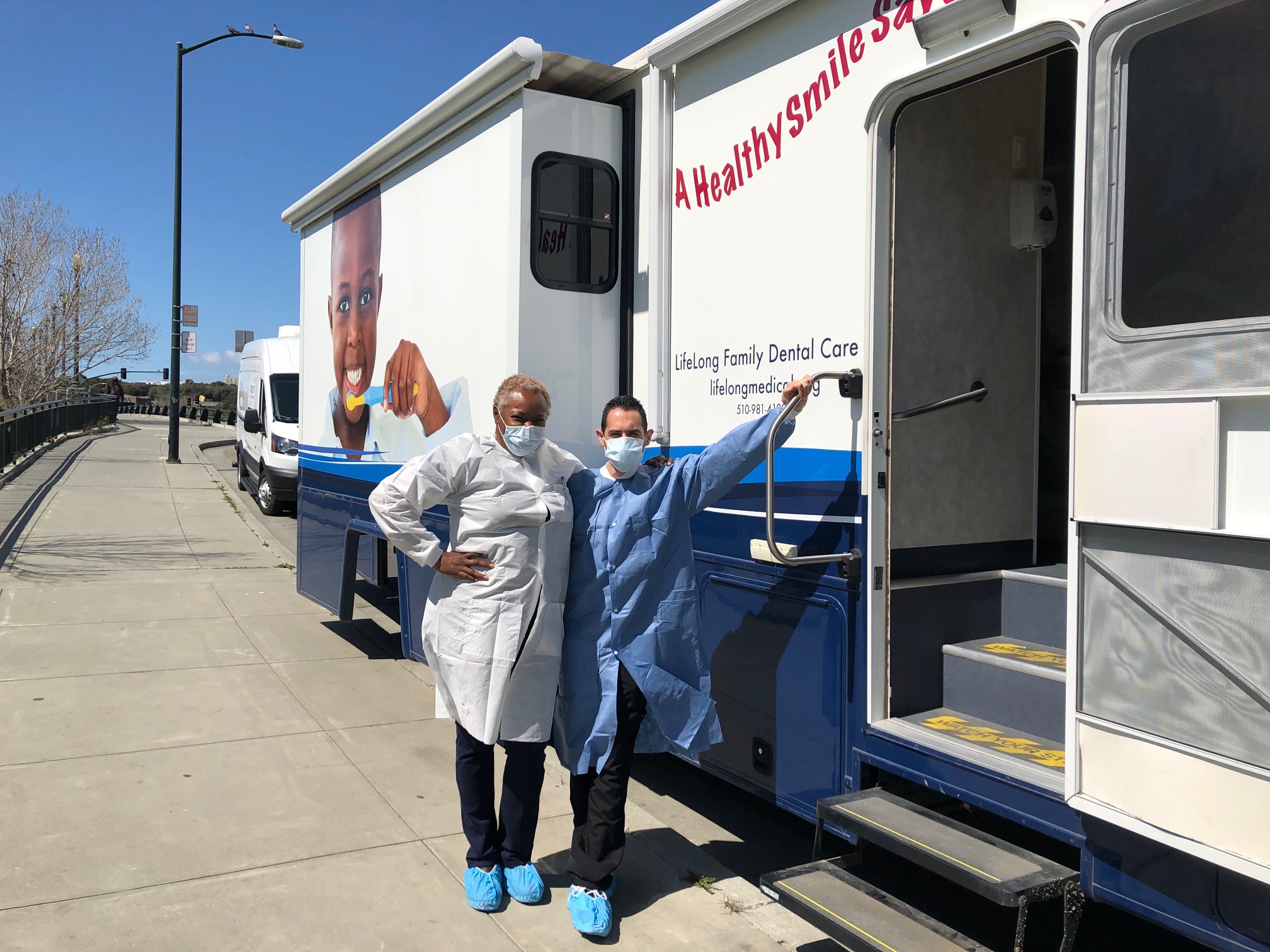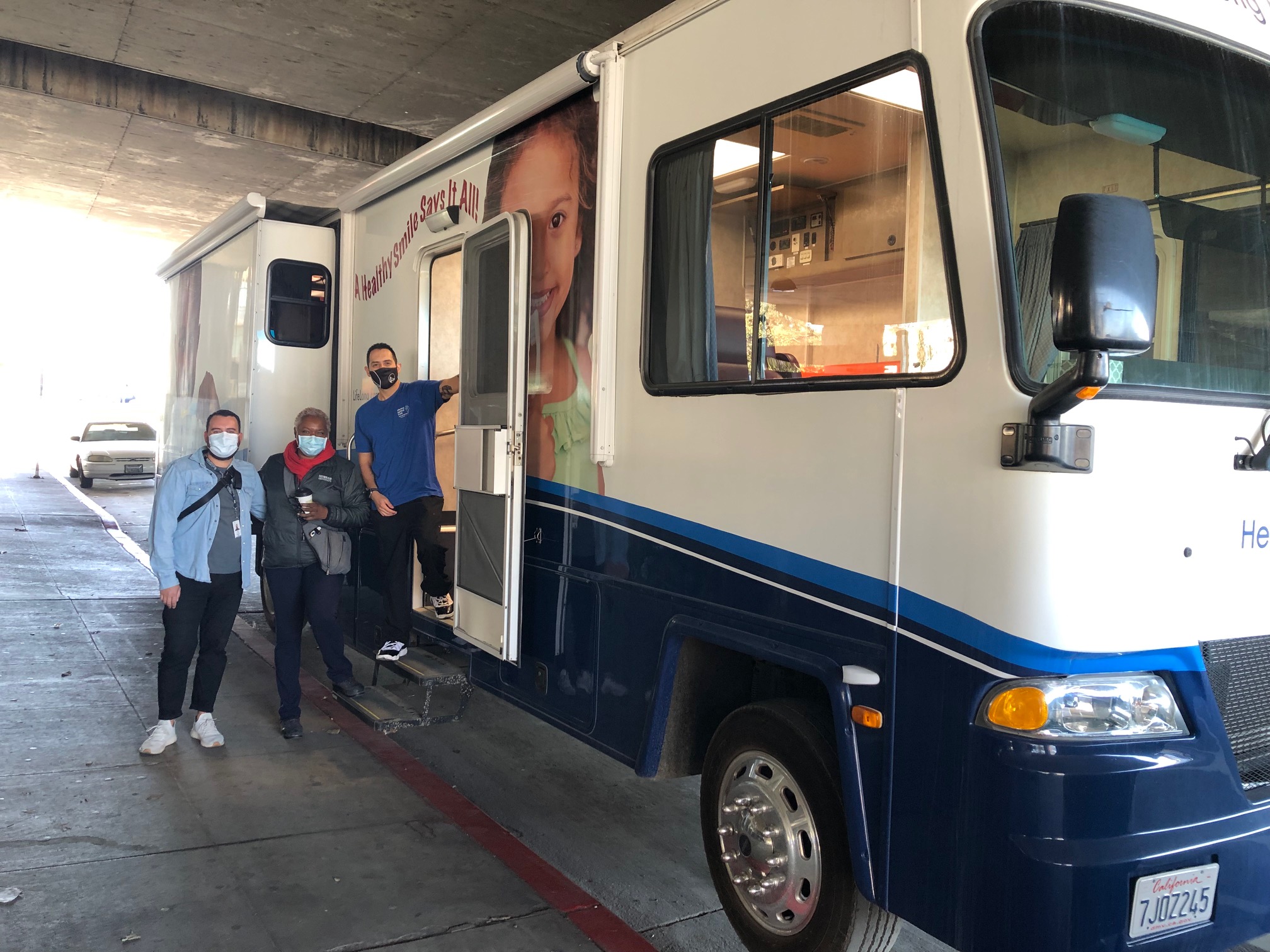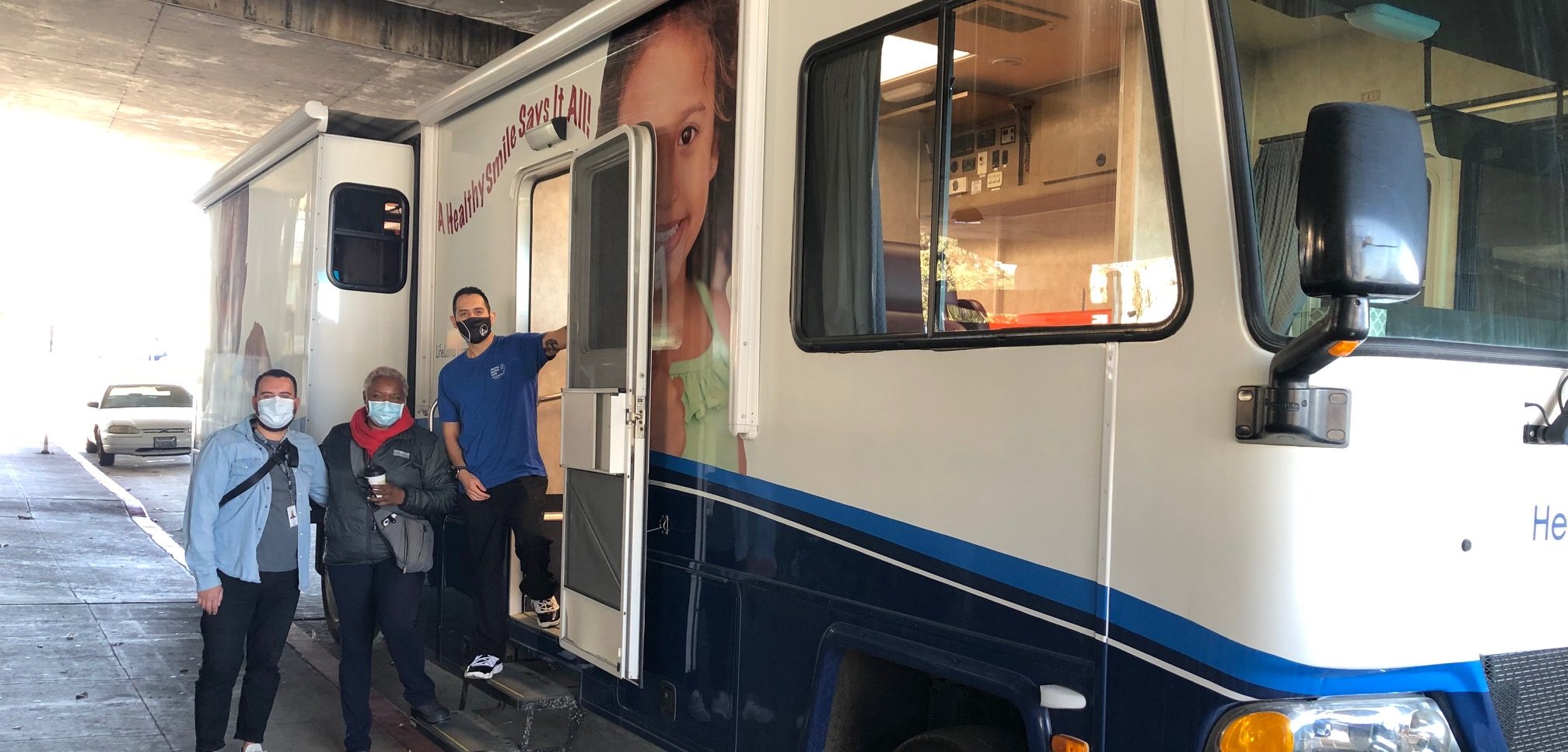LifeLong Medical Care’s Integrated Street Dental Program
Image: left to right, Ryan Wythe: Program Manager, Street Medicine, Miriam Parker, DDS: Chief Dental Officer, Eduardo Heredia, DA: Dental Van Coordinator
Blog Contribution by LifeLong Medical Care

It’s been just about a year since Miriam Parker, DDS, moved from Michigan back to her roots in the Bay Area to take on the newly elevated role of Chief Dental Officer at LifeLong Medical Care. Her personal and professional experiences made her an ideal choice. LifeLong CEO, David B. Vliet changed the role (previously Dental Director) to reflect that dental health is an integral component of overall health. It impacts self-esteem and diet, chronic disease management, and overall quality of life.

With vision and intention, Dr. Parker has made it a priority to improve oral health care for LifeLong’s older adult patients and patients experiencing homelessness, while simultaneously improving education and clinical practice for dentists of color.
Making mini-implants available to LifeLong’s older adult patients is an important part of this strategy. Dental implants increase nutrition as patients can eat a greater variety of nutritious foods, boost self-esteem by reducing isolation, and improve overall health. LifeLong plans to improve our capacity to deliver this care in our health centers integrated with primary care.
With Dr. Parker’s leadership, LifeLong is also increasing capacity by training dentists to perform this procedure. This past March LifeLong was able to provide practicum training to 9 staff dentists. With grant support, LifeLong is planning to begin an externship program with Howard University, Dr. Parker’s alma mater, in 2022. It will offer training for up to 16 dental students.
Also this spring, LifeLong Medical Care formed a partnership between its Street Medicine and Dental Care programs to offer people experiencing homelessness integrated dental treatment in Oakland. Unhoused people experience high rates of dental discomfort and periodontal disease due to a variety of barriers to dental care and recovery, and these have been exacerbated by the COVID-19 pandemic. The environmental and resource constraints of people experiencing homelessness who undergo palliative dental procedures pose unique challenges to successful recovery. Coordinating aftercare between Street Medicine and Dental teams to maximize proper healing means addressing the logistics of food and water, oral hygiene and supplies, and smoking cessation strategies.
This integrated service model has the potential to be replicated by other providers of Street Medicine and Dental services. LifeLong staff involved in the planning and roll-out of this model will be presenting at the International Street Medicine Symposium, which will be conducted virtually again this year, October 21-23. They will discuss overall program design, experiences with patient outreach and engagement, and the success and challenges of supporting patients recovering from palliative dental procedures during COVID-19.
Dr. Parker has served as a mission dentist all over the globe. For the past 17 years, she has been involved in education, screening, prevention, and treatment of oral diseases and the fabrication of dental/orthodontic appliances for cleft palate. Her work has taken her to Haiti several times, including a visit in 2010 after the catastrophic earthquake there.
When reflecting on the work with those experiencing homelessness, Dr. Parker offered this reflection: “In America, there is a feeling of greater responsibility to be part of the solution. Poverty and homelessness hit differently here than it did in foreign countries. So many people would be just as poor, but they would still have a place to sleep.”
Lear more about LifeLong Medical Care HERE.
